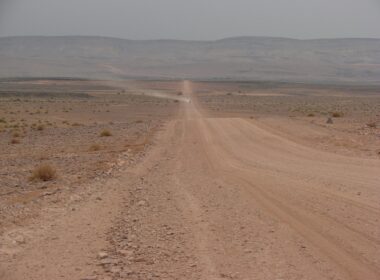I still remember the spartan classroom. It was a relic of past decades: the smudged black chalkboard rung with a splintering wooden frame, the olive drab walls, the 1960s desks with etchings everywhere, and a spare metal cross anchoring the room at its front.
Standing behind a folding table, perpetually wagging her index finger, was the professor sister teaching our first graduate course in theology: Church History to 1400. She looked the part with eerie perfection, missing only the ruler. Her voice had a peculiar, almost punitive edge as she forever warned us about getting history wrong. Because, she punctuated, history is why we are where we are.
“If you remember anything from this course,” she urged, “remember that the Council of Nicaea was in 325 AD.”
I was terrified of this woman. Honestly, I was terrified of the entire graduate school experience. Daily, I asked myself, “Am I ready for this? Can I do this? Is this just an opportunity for me to fail and embarrass myself?”
“I’m sure I will forget all about the Council of … what was it?”
Slowly, I found my academic legs. I warmed to the class, to the topic, to the finger-wagging. And when it came time to write our first essay, I thought myself ready. If memory serves, I wrote it in a day or two, handing it in with expectations that I would secure an “A” along with ample praise for my insights and analysis.
I suppose you know where this is headed. When the essays were handed back, mine lacked a grade. There was simply a note, scrawled at the back: “Come see me.”
I spiraled. It was happening — just as I thought it would. The crushing failure, the embarrassment. I was a hack; I didn’t belong in graduate school.
Still, I wanted to know what I did wrong. So I stumbled into Professor Sister’s office hours one chilly morning, barely keeping my composure, and sat down while she finished typing an email. Figures of Christ stared at me, judging. “You can do better,” I heard him say. I nodded sheepishly.
When she was done, Professor Sister turned to face me and interlaced her fingers, placing them dramatically on her desk. She was quiet, almost gentle, but there was a tinge of disappointment in her words. Her feedback was frosty:
“There was too much of you in your essay.”
I must have furrowed my brow or cocked my head, because she registered my confusion.
“Your paper is full of parentheticals. I read a lot about what you think of the Babylonian captivity — what you would have done and what your impressions are of Babylon’s handling of the Jewish exile. I’m not interested in what you think.”
I shifted in my seat.
“I asked you to write a paper detailing the motivations of Nebuchadnezzar before the destruction of Jerusalem and what led to the actions culminating in the exile. I want you to tell me what motivated Nebuchadnezzar, not what you think about what he may have been thinking.”
She paused, eyeing me. I could hear Jesus sigh.
“Jeff… your writing is good, but your analysis is off. I’d like you to take another pass at this essay — and leave yourself out of it.”
I nodded. But this directive went against everything I had learned to this point in my educational career. My undergraduate program leaned heavily on me as the analyst, the expert. The implicit question in each assignment was: Based on my reading and research, what did I think was happening and why? Suddenly, I was being asked to remove myself entirely from my work.
I was shook, I don’t mind telling you. But I took the directive. “Can I have a few days to turn this around?” I asked. She agreed, and that was the end of our discussion.
#
The story ends well, I’m happy to say. I feverishly produced another draft and turned it in, confident it would be ripped apart. But it came back with high marks: an A-, as a matter of fact.
What a whirlwind. In one week, I endured the roller coaster of crippling self-doubt: preparing myself to leave grad school behind, then climbing back up to some measure of confidence. At the end of the course, I stabilized.
More importantly, however, I learned a skill that eluded me in undergrad: How to analyze a situation without me at its center. How to think about others’ positioning, motivations, desires, and decisions that lead to what we know as history. My approach was no longer: “Why do I think so-and-so did such and such?” Instead, it became: “How can I suss out likely motivations given what I know of the people and circumstances in play?”
Seems like an obvious approach to many, but I still find myself tripping over the analyst’s ego. Regularly, I have flashbacks to that moment in Professor Sister’s office — to Jesus’s huffing disappointment — to my own epiphany as I carved out v2 of my first graduate essay:
What Jeff sees doesn’t matter. What Jeff sees matters.










